You can use lock keyword to prevent execution of code fragment in parallel.
Just wrap your function's calls into a lock statement or add a lock inside function itself.
class MyClass
{
private object lockObj = new();
public void MyFunction()
{
lock(lockObj)
{
//code goes here
}
}
}
//usage
void Test()
{
var myClass = new MyClass();
var thread1 = new Thread(ThreadFunc);
var thread2 = new Thread(ThreadFunc);
thread1.Start(myClass);
thread2.Start(myClass);
}
public static void ThreadFunc(object myClassObj)
{
var myClass = (MyClass)myClassObj;
myClass.MyFunction();
}
Note lockObj object here. To acheive behaviour you want, you should use exactly the same lockObj value in the lock statements. So, the following is WRONG
//WRONG, do NOT DO this
var myClass1 = new MyClass();
var myClass2 = new MyClass();
var thread1 = new Thread(ThreadFunc);
var thread2 = new Thread(ThreadFunc);
thread1.Start(myClass1);
thread2.Start(myClass2);
Here we have two independent instances of MyClass, so each instance has their own value of lockObj and thus this instances will not lock each other, so parallel exectution of myClass1.MyFunction() and myClass2.MyFunction() is allowed here.
